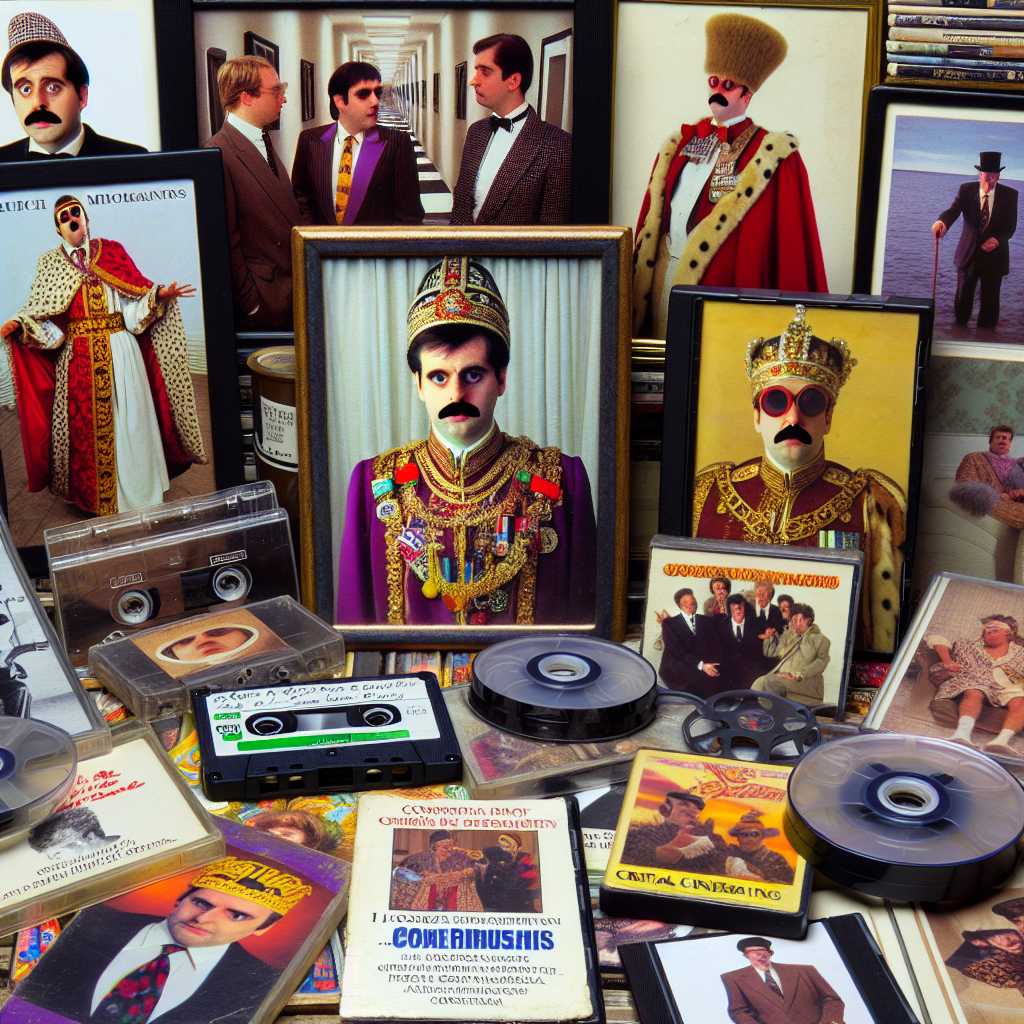The Enduring Legacy of “Weird Al” Yankovic: Parody, Polka, and Pop Culture
“Weird Al” Yankovic stands as a unique and enduring figure in music and pop culture, having built a decades-long career on the artful parody of popular music and the affectionate lampooning of contemporary culture. His work has gained acclaim for not only its humor but also its musical complexity and the respectful manner in which he approaches the artists he parodies. In this comprehensive overview, we explore the multi-faceted aspects of Weird Al’s career, from his rise to fame to his influence on comedy and culture at large.
Early Life and Initial Breakthrough
The man who would become “Weird Al” was born Alfred Matthew Yankovic on October 23, 1959, in Downey, California. Even as a child, Yankovic showed a flair for entertainment and an affinity for music; he started playing the accordion after a salesman offered his parents a choice between accordion and guitar lessons for their son. The accordion would later become a pivotal instrument in his parodies and original songs.
Yankovic’s entree into the world of professional entertainment began when he sent a homemade tape to Dr. Demento, a renowned radio host known for playing novelty and comedy music. The tape’s standout track, a live recording of “My Bologna,” a parody of The Knack’s hit “My Sharona,” earned him airplay and encouragement to continue his work. This early boost to his career demonstrated Yankovic’s talent for catchy, comical twists on contemporary hits, a signature that would shape his entire career.
Rise to Parody Stardom
Breaking into the industry wasn’t without challenges, but Yankovic managed to capture mainstream attention with his breakout hit, the 1984 Michael Jackson parody “Eat It,” which humorously took on Jackson’s “Beat It.” The release wasn’t just musically spot-on; it was accompanied by a music video that meticulously spoofed the original. This dual mastery of song and visual parody brought Weird Al both critical acclaim and commercial success.
Over the years, Weird Al’s mastery of satire has evolved as he has parodied artists ranging from Madonna (“Like a Surgeon”) to Nirvana (“Smells Like Nirvana”), reflecting shifts in the musical landscape. With every passing generation, Weird Al has adapted his craft to remain relevant to both his original audience and younger listeners.
Evolution of Music Styles and Adaptability
The enduring popularity of “Weird Al” is partly due to his ability to remain current by adapting to new trends in music genres. His range is vast—besides pop, he has tackled genres such as rock, hip-hop, rap, and even boy band styles—showcasing his musical versatility. In addition to parodies, Yankovic has composed numerous original songs often styled into polka medleys that cover an array of billboard hits.
His 2014 album “Mandatory Fun” displayed adaptability on an unprecedented scale—with videos released daily upon the album’s launch—tackling the then-novel realm of social media promotion with viral results. The album became Weird Al’s first Billboard 200 No. 1, proving that even with enduring themes in comedy and artistry, evolving media’s consumption can work greatly in favor of niche talents like Yankovic.
Music as Social Commentary
Beyond humor, one could contend that Yankovic’s work operates as an ongoing commentary on the cultural zeitgeist. Through sharp satirical observation—and without malice—he exposes absurdities within music industries as well as broader cultural changes in society. He humorously criticizes everything from individualistic excessiveness in popular culture (“Fat,” “Tacky”) to transitory trends (“Foil”).
Moreover, Weird Al’s often-meta parodies have granted listeners not only enjoyment but illumination on the musical process itself. Songs like “Bob,” inspired by Bob Dylan but consisting entirely of palindromes, reflect deep creativity underpinning zany exteriors.
Critical Acclaim and Recognition
Though mainly categorized under comedy music—a genre sometimes unjustly overlooked for its artistic merit—Weird Al has secured respect from both critics and his musical peers over the years due to his commitment to high-quality productions (such as ensuring the fidelity of instrumental arrangements) and overall professionalism. Yankovic’s contributions have been recognized with five Grammy Awards out of sixteen nominations spanning from 1984 till this day.
Influence on Comedy and Culture
“Weird Al” Yankovic’s impact extends far beyond just melodies or catchy choruses; he has become an integral part of American pop culture lexicon. His flair for parody has shaped how subsequent comedians approach satire in music while encouraging his audience to engage with music more critically or at least with greater joviality.
His approach has built bridges between generations, with parents who grew up enjoying Weird Al’s music introducing their children to his classics—ensuring that numbers such as “Amish Paradise” and “White & Nerdy” find new relevance.
Moreover, Yankovic’s persona achieved further prominence due to appearances across different media including film (UHF), television (numerous cameos), voice acting (various cartoon series), and even written works (“Weird Al: The Book”).
Notes
Image description: A tableau showcasing various stages of “Weird Al” Yankovic’s career — album covers that depict comedic portrayals ranging from costume-clad hallway confrontations to opulent monarch attire, scattered around are also VHS tapes and DVDs highlighting major film projects like UHF, highlighting his versatility as both a musician and a culture icon.
